New Data Shows Intel's Dominant Position in China
Data from the Chinese benchmark Master Lu shows a picture of the PC market in China. The Chinese are most likely to use Intel processors and graphics cards from Nvidia.
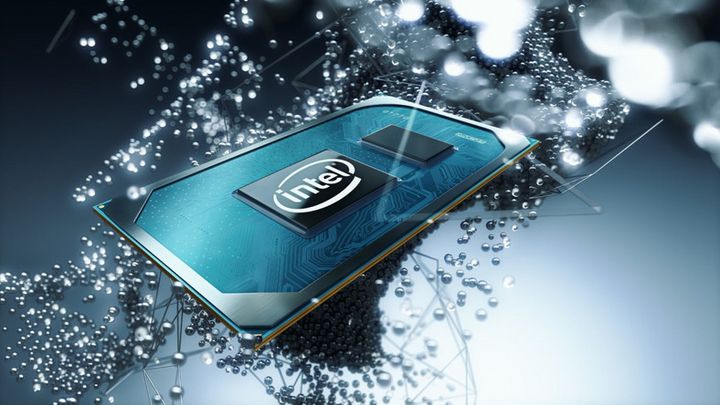
IN A NUTSHELL:
- Intel dominates the Chinese CPU market, with a 78.8% share;
- The 7 most popular desktop processors are Intel designs;
- On laptops, two CPUs from AMD found their way to the top 10;
- In the GPU market, AMD loses to Nvidia.
Wccftech published an interesting compilation of data from the popular Chinese benchmark Master Lu. It shows that Intel processors dominate in China, with the U.S. company's market share in this country reaching 78.80% (77.08% for desktop computers and 81.03% for laptops). It is worth noting that China is the largest PC hardware market in the world.
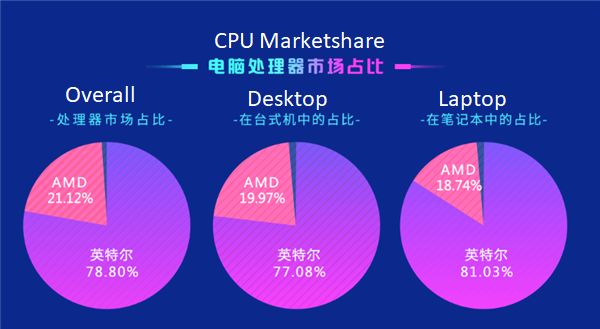
For both desktops and laptops, the first three most popular processors in China are Intel designs. The top 10 lists are, in fact, completely dominated by Intel products, with only 3 (desktop) or 2 (laptop) AMD products.
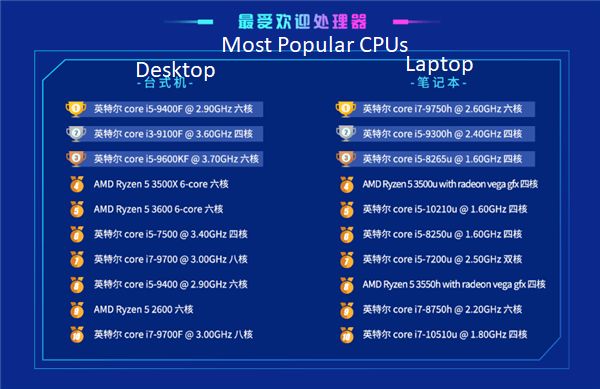
A little consolation for AMD can be found in the last chart, which shows the most efficient processors used in the country. This list is dominated by AMD's solutions - as many as the first six positions are occupied by Dr. Lisa Su's computing units.
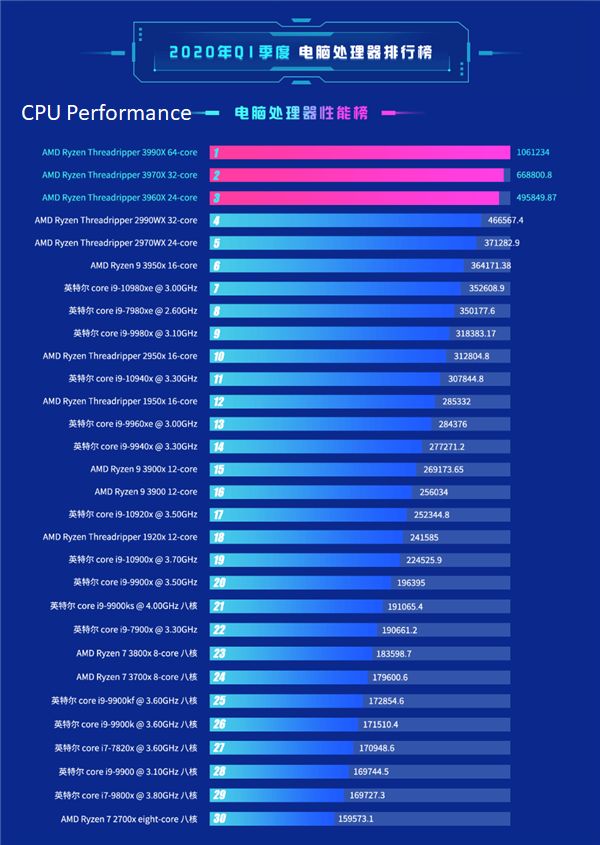
AMD has no reasons to be satisfied with the Chinese GPU market either. Although the most popular graphics card in the country is the Radeon RX 580, it is also the only AMD design in the top 10. The remaining nine spots are occupied by Nvidia products, with the GeForce GTX 1660 and GeForce GTX 1650 at the forefront. Nvidia provided 67.18% of Chinese desktop GPUs (AMD's share is 32.73%).
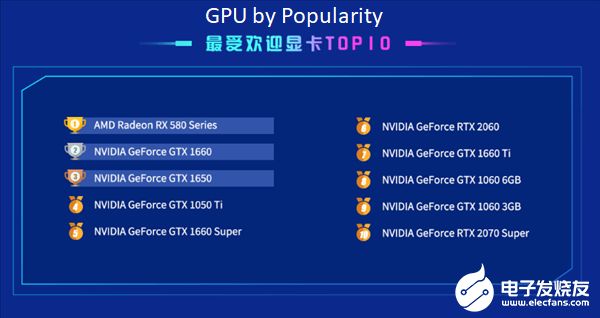
Finally, it is worth noting that the specifics of the Chinese market often cause changes to take place slowly - the Chinese are strongly attached to their brands, and most often rely on products offering the best value for money (it is not necessarily the latest hardware). Over time, consumers are likely to trust AMD devices, especially since the company's offer has been very good in recent years.
- Tokyo Xtreme Racer (TXR) - console (PS5, PS4, Switch) release explained
- Mandatory ray tracing requirement the future of PC gaming? Doom The Dark Ages’ system specs signal a troubling trend
- RTX 5090 is a legend that no one has seen with their own eyes, and gamers sell GPU photos to bots
- Can RX 580 GPU run Spider-Man 2? We have some good news for you
- How to get inZOI Creative Studio key. Don't miss this early access